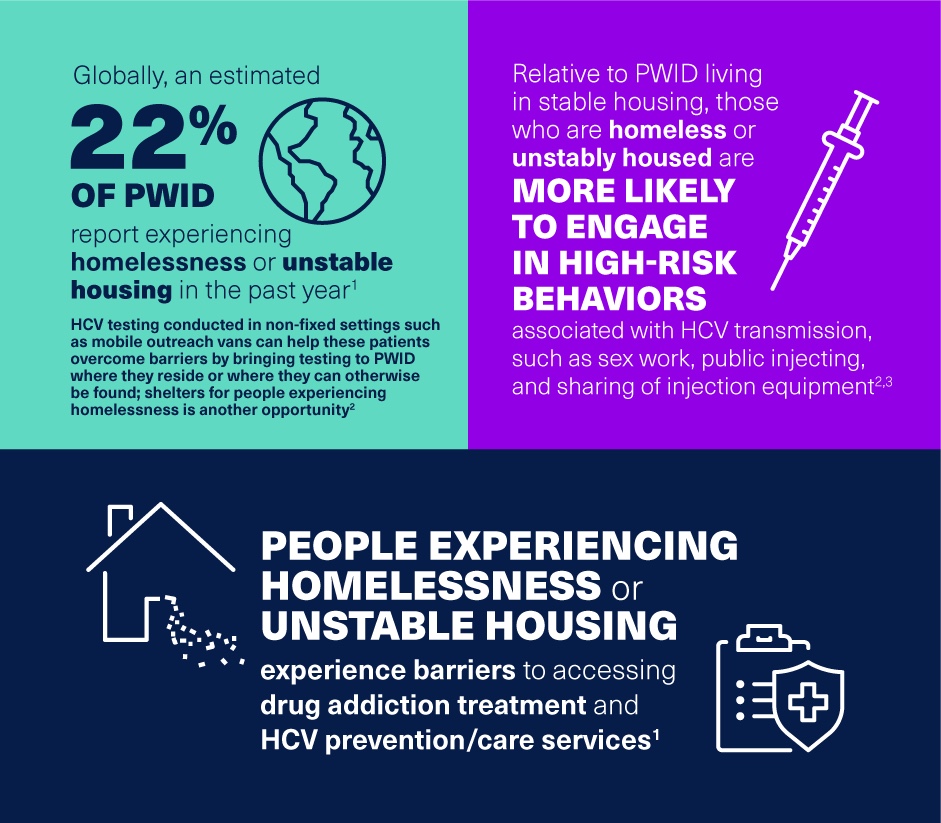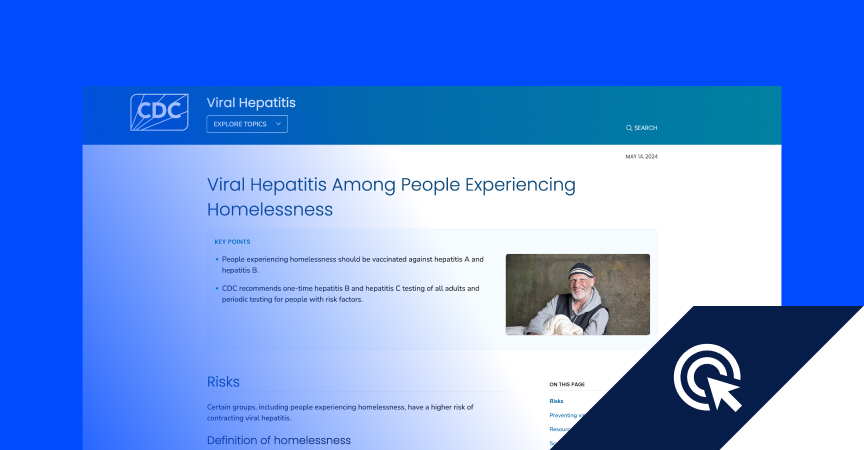Living With HCV
Meet Mark
Mark is a 22-year-old college student at a Minneapolis community college who works as a delivery driver for a local pizzeria.
A Closer Look
Mark's childhood was troubled and lacked parental guidance. He never knew his father, and his mother committed suicide when he was 14 years old. These factors took an emotional toll, and he started drinking alcohol when he was just 16 and then began using and selling drugs a year later. After learning he had contracted HCV, he was treated and cured a year ago, but is at risk of reinfection as he continues to use drugs. He was recently evicted from his apartment near campus due to chronically late rent payments over the past 6 months. Mark battles social anxiety and depression, and is currently failing many of his classes.
A Look Ahead
Mark recently started injecting drugs with some people he met near the local homeless shelter. With the loss of his home and an increasing dependence on drugs, he feels like his life is slipping out of control.

Healthcare Outlook
Mark understands the risk of contracting a disease or virus through shared needles, but is hesitant to approach a healthcare provider or visit an emergency room for testing. Previously, Mark was able to seek care from a mobile sexually transmitted infections testing center and was told he was positive for HCV. He was offered treatment and was cured after a few months, although he never sought follow-up care. Mark remembered the nurse telling him about the risk for reinfection of HCV, but he’s concerned about getting tested now because he’s uninsured and has been turned away in the past for that reason. One emergency room facility simply did not know how to screen and test him for hepatitis C. Mark wishes it were easier for him to be tested and is looking for another mobile clinic, with little luck. He’s starting to experience some symptoms and is concerned he has contracted HCV again.
The Bigger Picture
Persons experiencing homelessness are more likely to engage in behaviors, including injection drug use, that put them at higher risk of HCV infection2
There are benefits to HCV treatment of people who inject drugs in a multidisciplinary care setting to reduce reinfection risk and address social and psychiatric comorbidities4


Additional Resources

CDC: Viral Hepatitis Among People Experiencing Homelessness
Homelessness impacts both physical and mental health, making it difficult to access health care
References
- Arum C, Fraser H, Artenie AA, et al. Homelessness, unstable housing, and risk of HIV and hepatitis C virus acquisition among people who inject drugs: a systematic review and meta-analysis. The Lancet. 2021;6(5):E09-E323. doi: 10.1016/S2468-2667(21)00013-X
- Managing HIV and hepatitis C outbreaks among people who inject drugs. CDC. March 2018. Accessed August 21, 2024. https://www.cdc.gov/persons-who-inject-drugs/media/pdfs/2024/04/cdc-hiv-hcv-pwid-guide.pdf
- Marshall BD, Kerr T, Shoveller JA, Patterson TL, Buxton JA, Wood E. Homelessness and unstable housing associated with an increased risk of HIV and STI transmission among street-involved youth. Health Place. 2009;15(3):753-760.
- Key populations: identification and management of HCV in people who inject drugs. AASLD-IDSA. Updated December 19, 2023. Accessed August 21, 2024. https://www.hcvguidelines.org/unique-populations/pwid

